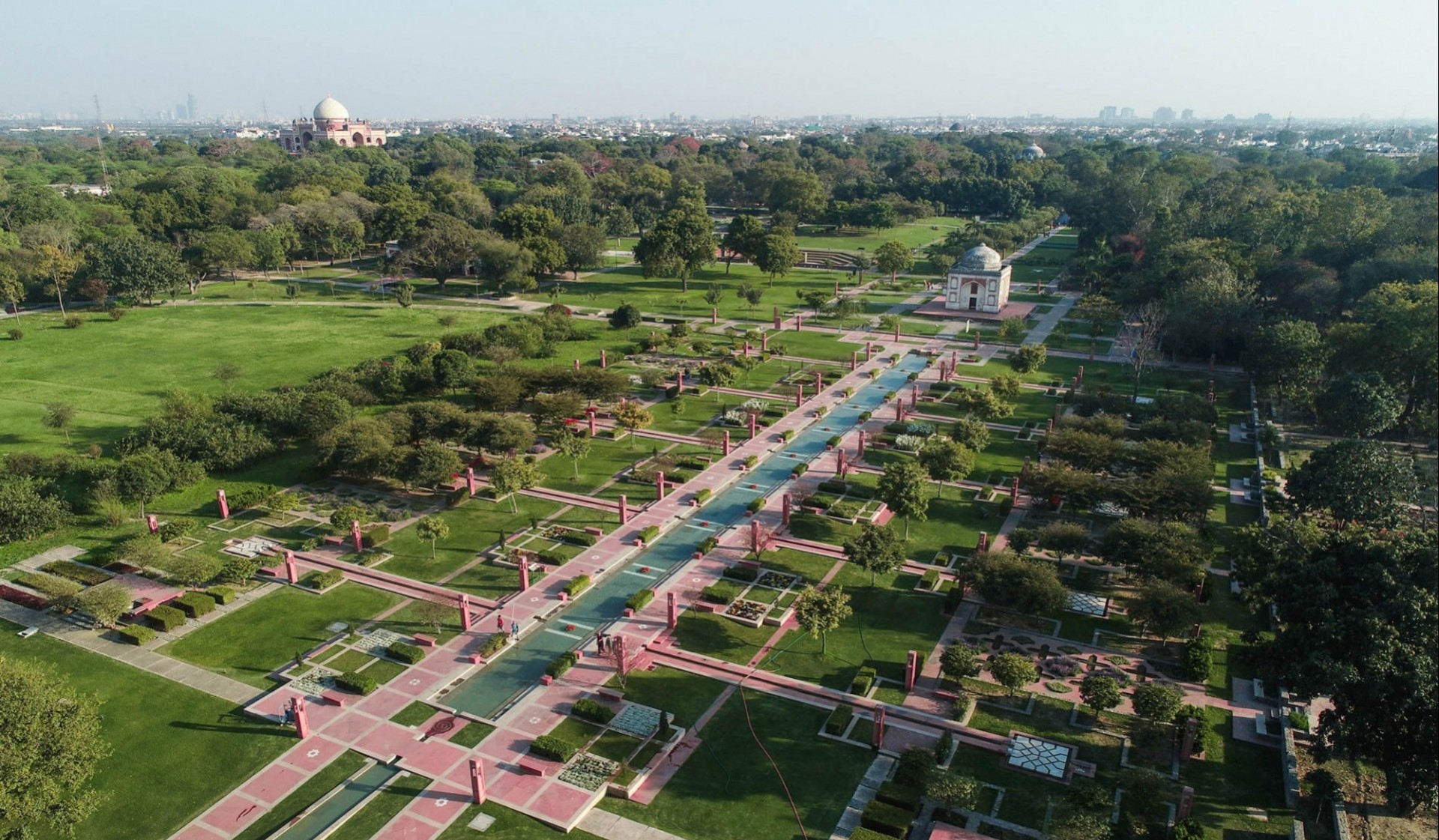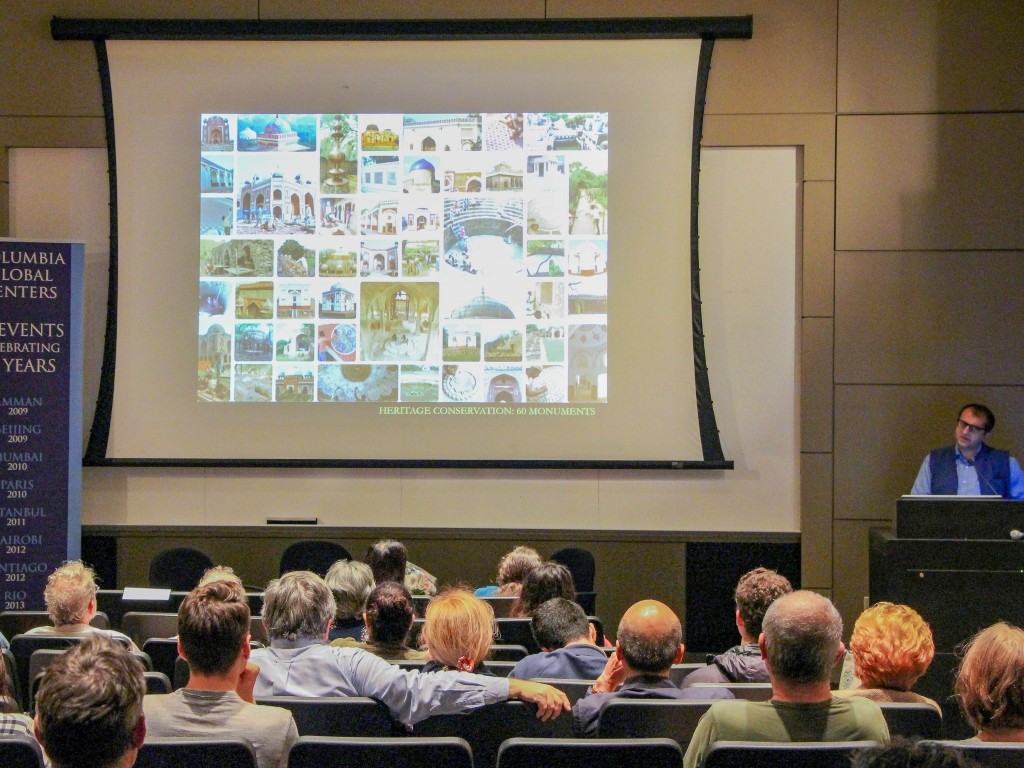Conserving Urban Biodiversity

India’s rich natural heritage is facing immense challenges as the country rapidly urbanizes. Studies demonstrate that cities with nature reserves regenerate ecosystems, motivate citizens towards sustainable behavior, and have a positive impact on pollution and health hazards.
Responding to the urgency of spreading awareness about green spaces and conserving urban biodiversity, Columbia Global Centers | Mumbai launched an exciting initiative. In 2019, the Center entered into a project partnership with the Aga Khan Trust for Culture (AKTC) in India to develop educational and outreach programs aimed at enabling Sunder Nursery, located in the heart of the country’s capital city, to grow into a world-class urban park.
Sunder Nursery is considered to be ‘New Delhi’s Central Park’ and is significant for its Mughal monuments and floral and faunal diversity. AKTC has led the conservation of the larger project area that contains the park as well as the iconic Humayun’s tomb monument. The organization’s pioneering multi-pronged approach involves working with several government agencies and undertaking urban projects that equally emphasize the objectives of heritage conservation, environmental impact, and socio-cultural betterment of local communities.
The Center’s partnership with AKTC will generate online and offline educational and resource materials, curated outreach programs, documentation initiatives, and internships for students. To announce this partnership, the Center organized a public event entitled “City of Haze, Gardens of Beauty: Reimagining Nature in Urban India” at Columbia University in New York in September 2019 for an interdisciplinary audience of faculty, students, and alumni.

“We are very excited about the partnership with Columbia Global Centers to both help achieve project objectives and create new knowledge with field teams and academics working together.”
- Ratish Nanda, CEO of the Aga Khan Trust for Culture in India
Ruth DeFries, Chair of the Center’s Faculty Advisory Committee and Professor of Ecology and Sustainable Development, participated in the event and emphasized that with careful planning and political will, we can live in harmony with nature and balance the demands of development and conservation.
Professor DeFries, who has worked extensively on land transformation in India, had earlier presented her work at the Center through an interactive discussion and screening of a documentary film on wildlife protection entitled “From Killer Roads to Humane Highways” together with Krithi Karanth from the Centre of Wildlife Studies in Bengaluru.
The Center also organized symposiums in Mumbai and New Delhi to provide a learning forum for showcasing best practices for addressing policy gaps and promoting ‘nature-centric’ public engagement in urban areas. These consultations elicited concrete ideas for focusing efforts and saw enthusiastic participation from experts from leading organizations in India such as the World Wildlife Fund, Bombay Natural History Society, Godrej Mangroves, and IIT Bombay.
The Center’s larger initiative on conserving biodiversity exemplifies its commitment to developing programs and partnerships that deepen the experiential, educational and inspirational impact of green reserves for local visitors and citizens worldwide.